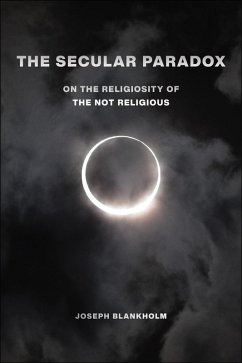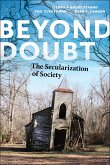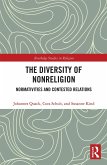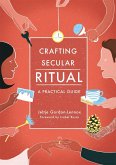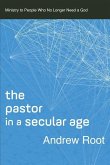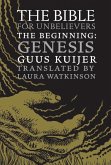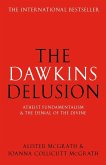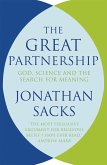"Secular people are strangely ambiguous. They feel a tension between what they don't share and what they have in common-between avoiding religion and embracing something like it. An event as ordinary as a wedding can be uncomfortable if it feels too religious, and even for those who are indifferent to religion, a passing reference to God can be cringeworthy. And yet, religion is tough to avoid completely without living in its remainder. The Secular Paradox explains why. Relying on several years of ethnographic research among secular activists and organized nonbelievers in the United States, Blankholm shows how secular people are both absolutely not religious and part of a religion-like tradition, which includes beliefs and institutions, as well embodied practices. Recovering this tradition makes legible what secular people share with one another and explains why the secular movement in the United States remains predominately white and male. Humanistic Jews, Hispanic Freethinkers, Ex-Muslims, and black nonbelievers are secular misfits whose stories reveal the contours of the secular most clearly by proving to be more and less than what remains when Christianity is removed. The Secular Paradox offers a radically new way of understanding secularism and secular people by explaining the origins of their inherent contradiction and its awkward effects on their lives. This new understanding matters for anyone who has ever avoided something because it felt too religious, everyone who considers themselves secular, and all those who want to understand them better."--
Hinweis: Dieser Artikel kann nur an eine deutsche Lieferadresse ausgeliefert werden.
Hinweis: Dieser Artikel kann nur an eine deutsche Lieferadresse ausgeliefert werden.

